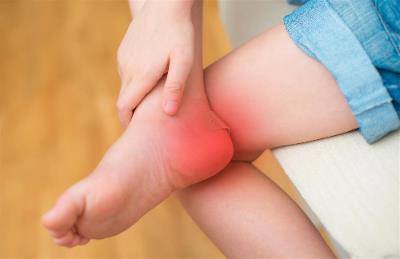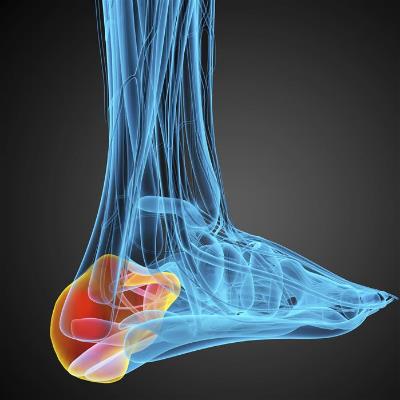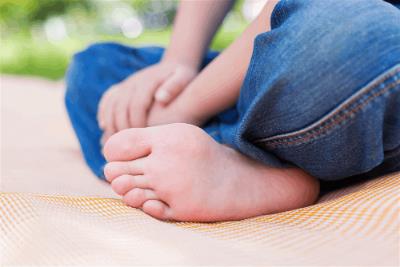 What is is?
What is is?
Sever’s disease or “calcaneal apophysitis” is a common condition affecting children. It is characterised by an insidious onset of heel pain that usually worsens with activity. It can develop in any child but more commonly affects more physically active children. It is most often seen in girls aged 9-11 and boys aged 10-12 years old.
Sever’s Disease is inflammation and pain at the growth plate in the heel of the foot. Growth plates are found at the ends of developing bones and contain soft cartilage that forms into adult bone.The growth plates are weaker and softer before they are fully formed into adult bones. In the period of rapid growth, a child’s bones grow faster than their muscles, which causes them to become tighter and weaker. In the instance of sever’s disease the calf muscle and Achilles tendon is pulling tight on the growth plate in the heel causing pain and irritation.
 Signs and Symptoms
Signs and Symptoms
- Pain in the heel area or Achilles tendon on one or both feet
- Pain during and/or after exercise
- Worsened by impact activities like running and jumping
- Worsens with exercise often improves with rest
- Swelling at the heel and can be sore to touch
- Calf muscle tightness
- Limping or walking on toes
Treatment:
- Relative rest from aggravating activities
- Ice
- Supportive shoes
- Heel lift in shoes to offload the Achilles
- A progressive stretching and strengthening program
Your physiotherapist will advise you to begin with lighter activity and progress to higher impact activity to ensure the growth plate is not aggravated causing a flare up of symptoms.
Will it cause long term problems?
Once the child’s growth slows, symptoms generally resolve with no long term effects.
Flare ups can occur over months during periods of growth but are only self limiting, meaning they are temporary and will settle with rest.
If the child continues to overload the foot with activity and “push through the pain” there is a risk of malformation of the growth plate into adult bone, however this is uncommon and if treated properly will not result.
If you have any question or want to discuss further with one of our physios, just reach out and we would be more then happy to help.
BOOK NOW
Active Answers Physiotherapy located at the boarder of North Balgowlah and Seaforth on the Northern Beaches 